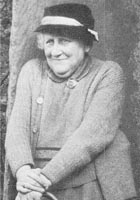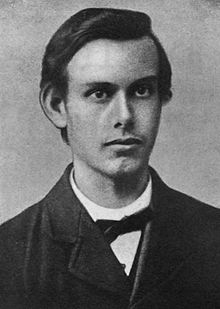Fort Matanzas Park includes a beautiful unspoiled beach of white sand dunes that are protected so wildlife can dwell in their natural habitat. Dragonflies were everywhere flying along the walkway. They behaved like miniature planes landing on tips of branches with their wings pointed upward. I never saw so many dragonflies in one place. A Dragonfly is suppose to have the heart of a dragon. The Desolation of Smaug is a new movie coming out in December. I wonder if Smaug has the heart of a dragonfly? Dragons appear in many folklores, legends and children books.
Watercolor by J.R. Tolkien
The Hobbit
In Tolkien’s fantasy world, Middle-earth, is populated with creatures that owe much to the literary tradition of northern Europe. A Professor of Anglo-Saxon at Oxford, Tolkien had an expert knowledge of this tradition. In the year he drew this watercolor, he wrote: ‘A dragon is no idle fancy. Whatever may be his origins, in fact or invention, the dragon in legend is a potent creation of men’s imagination, richer in significance than his barrow is in gold.’
This vibrant illustration is one of a set of five, painted by Tolkien in the summer of 1937 for the first American edition of The Hobbit. It is full of vivid details, including the Arkenstone gleaming on top of the treasure trove, the skeletons of those who had attempted previous thefts, and a curse written in Elvish script on the large amphora. A feast for children's eyes!
 THE TALE OF CUSTARD THE DRAGON
THE TALE OF CUSTARD THE DRAGON
By Ogden Nash 1936
Belinda lived in a little white house,
With a little black kitten and a little gray mouse,
And a little yellow dog and a little red wagon,
And a realio, trulio, little pet dragon.
Now the name of the little black kitten was Ink,
And the little gray mouse, she called her Blink,
And the little yellow dog was sharp as Mustard,
But the dragon was a coward, and she called him Custard.
Custard the dragon had big sharp teeth,
And spikes on top of him and scales underneath,
Mouth like a fireplace, chimney for a nose,
And realio, trulio, daggers on his toes.
Belinda was as brave as a barrel full of bears,
And Ink and Blink chased lions down the stairs,
Mustard was as brave as a tiger in a rage,
But Custard cried for a nice safe cage.
Belinda tickled him, she tickled him unmerciful,
Ink, Blink and Mustard, they rudely called him Percival,
They all sat laughing in the little red wagon
At the realio, trulio, cowardly dragon.
Belinda giggled till she shook the house,
And Blink said Week!, which is giggling for a mouse,
Ink and Mustard rudely asked his age,
When Custard cried for a nice safe cage.
Suddenly, suddenly they heard a nasty sound,
And Mustard growled, and they all looked around.
Meowch! cried Ink, and Ooh! cried Belinda,
For there was a pirate, climbing in the winda.
Pistol in his left hand, pistol in his right,
And he held in his teeth a cutlass bright,
His beard was black, one leg was wood;
It was clear that the pirate meant no good.
Belinda paled, and she cried, Help! Help!
But Mustard fled with a terrified yelp,
Ink trickled down to the bottom of the household,
And little mouse Blink strategically mouseholed.
But up jumped Custard, snorting like an engine,
Clashed his tail like irons in a dungeon,
With a clatter and a clank and a jangling squirm
He went at the pirate like a robin at a worm.
The pirate gaped at Belinda's dragon,
And gulped some grog from his pocket flagon,
He fired two bullets but they didn't hit,
And Custard gobbled him, every bit.
Belinda embraced him, Mustard licked him,
No one mourned for his pirate victim
Ink and Blink in glee did gyrate
Around the dragon that ate the pyrate.
Belinda still lives in her little white house,
With her little black kitten and her little gray mouse,
And her little yellow dog and her little red wagon,
And her realio, trulio, little pet dragon.
Belinda is as brave as a barrel full of bears,
And Ink and Blink chase lions down the stairs,
Mustard is as brave as a tiger in a rage,
But Custard keeps crying for a nice safe cage.








